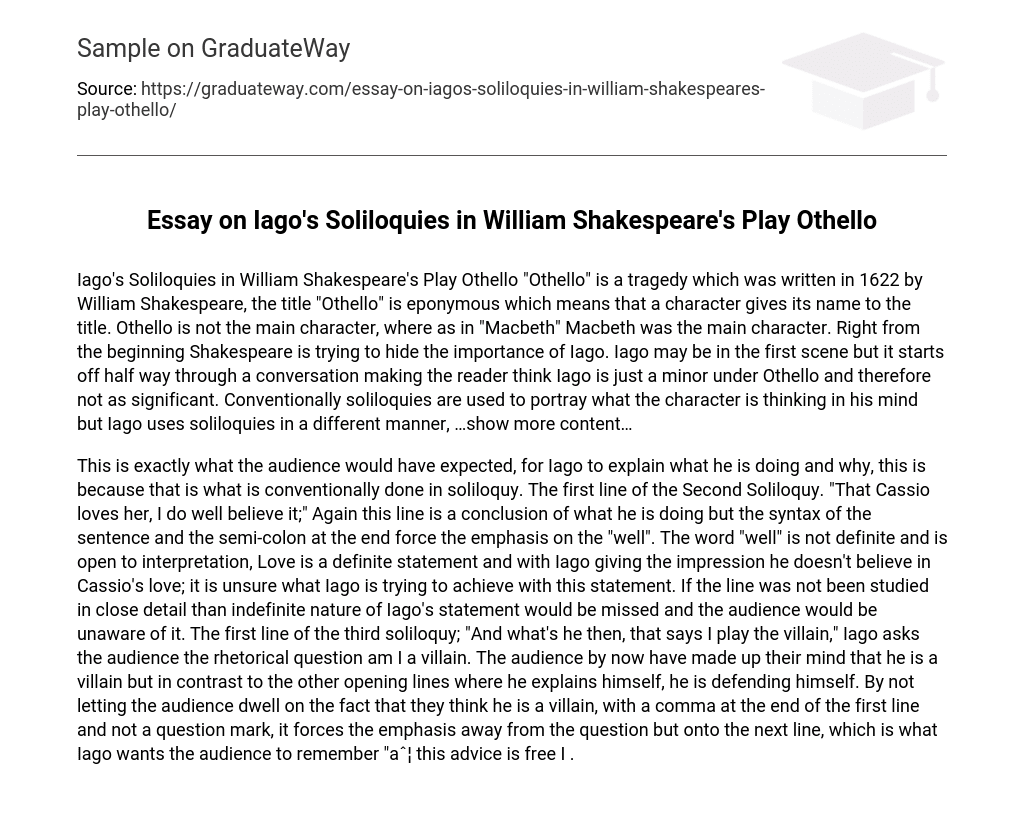Iago’s Soliloquies in William Shakespeare’s Play Othello “Othello” is a tragedy which was written in 1622 by William Shakespeare, the title “Othello” is eponymous which means that a character gives its name to the title. Othello is not the main character, where as in “Macbeth” Macbeth was the main character. Right from the beginning Shakespeare is trying to hide the importance of Iago. Iago may be in the first scene but it starts off half way through a conversation making the reader think Iago is just a minor under Othello and therefore not as significant. Conventionally soliloquies are used to portray what the character is thinking in his mind but Iago uses soliloquies in a different manner, …show more content…
This is exactly what the audience would have expected, for Iago to explain what he is doing and why, this is because that is what is conventionally done in soliloquy. The first line of the Second Soliloquy. “That Cassio loves her, I do well believe it;” Again this line is a conclusion of what he is doing but the syntax of the sentence and the semi-colon at the end force the emphasis on the “well”. The word “well” is not definite and is open to interpretation, Love is a definite statement and with Iago giving the impression he doesn’t believe in Cassio’s love; it is unsure what Iago is trying to achieve with this statement. If the line was not been studied in close detail than indefinite nature of Iago’s statement would be missed and the audience would be unaware of it. The first line of the third soliloquy; “And what’s he then, that says I play the villain,” Iago asks the audience the rhetorical question am I a villain. The audience by now have made up their mind that he is a villain but in contrast to the other opening lines where he explains himself, he is defending himself. By not letting the audience dwell on the fact that they think he is a villain, with a comma at the end of the first line and not a question mark, it forces the emphasis away from the question but onto the next line, which is what Iago wants the audience to remember “aˆ¦ this advice is free I .





